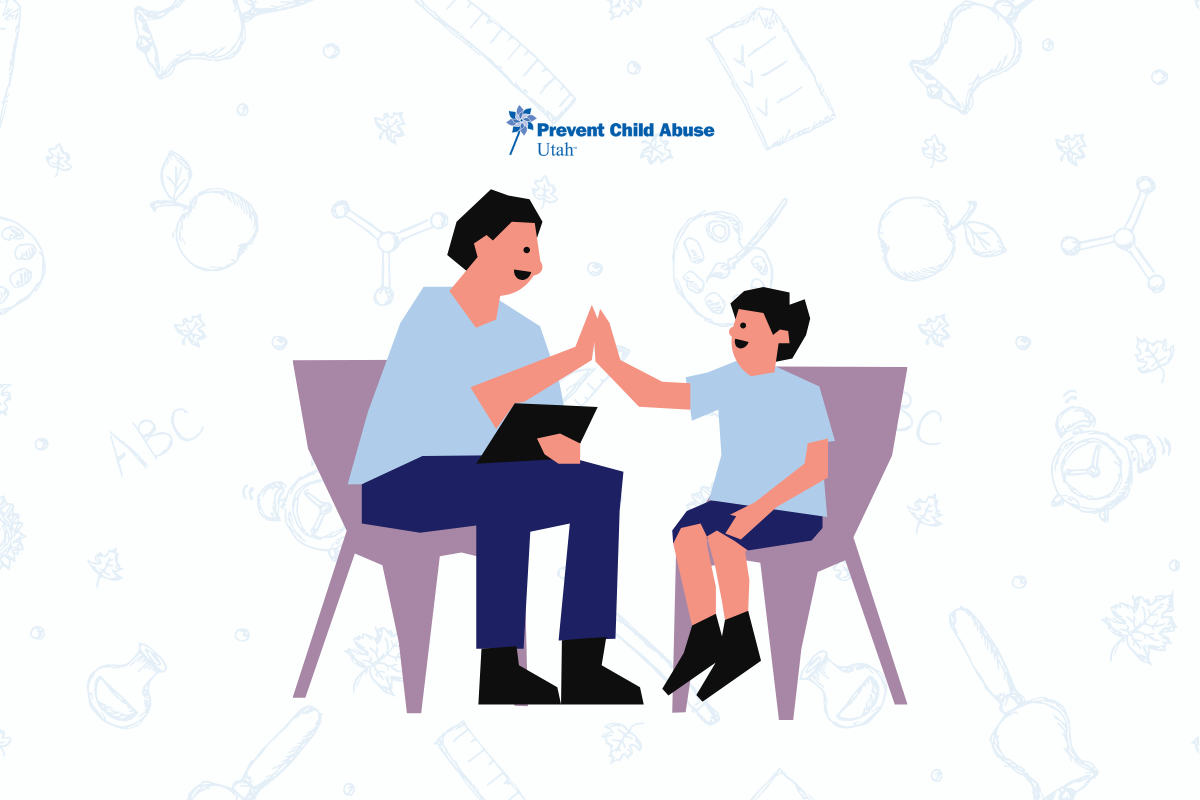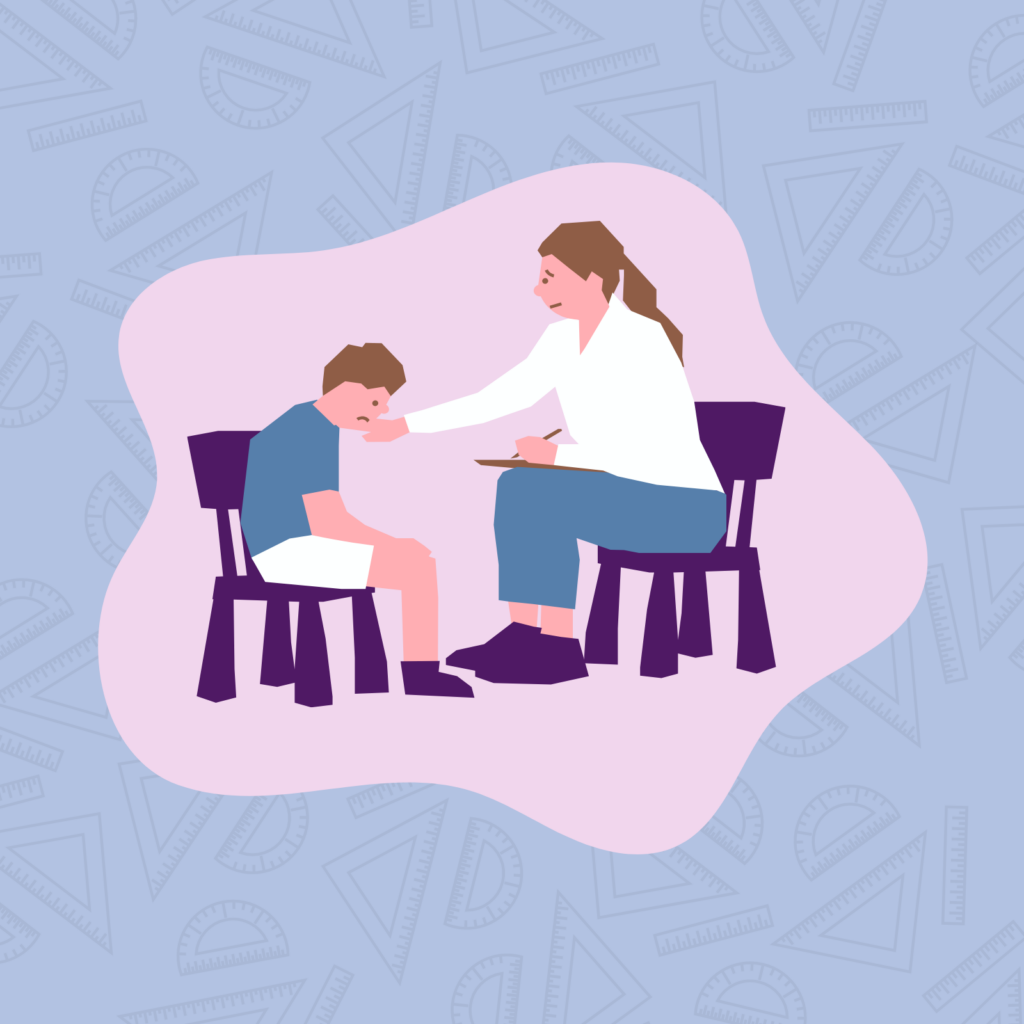
School counselors touch so many lives at once. Their role is simple: to help students achieve academic and personal success, so they can continue chasing their dreams. This could be as simple as coaching younger kids in their interests or guiding high-schoolers through the college application maze.
But their job doesn’t stop at these rewarding moments. It dives into deeper, more challenging waters.
In a perfect world, school counselors would only focus on academics. But the reality is starkly different. Many students come from backgrounds of abuse or neglect, or they might be grappling with personal/family mental health issues.
5 Ways School Counselors Help Detect and Prevent Child Abuse
Studies show that 77% of children are victimized by parents in substantiated cases of child abuse. It’s on the counselors to recognize distress signals and act in the student’s best interest. Here’s a refined look at their contributions and the importance of child abuse prevention in Utah.
1. Understanding the Signs
School counselors have a sharp eye for both the clear and hidden signs of abuse, such as:
- Visible, suspicious injuries- bruises, cuts, and scrapes
- Showing fear around adults
- Withdrawing
- Aggressive behavior
- Struggling to make friends
- Exhibiting reckless behavior
- Being destructive
- Spending excessive time at school and not wanting to go home
- Hygiene issues
- Coming to school with the same clothes every day
- Showing signs of excess hunger
Spotting these signs is the first step to saving a child who might be in danger. When counselors suspect abuse, they act fast, activating safety protocols and connecting with the necessary services to protect the victim.
2. Building Trust
Building trust is key for school counselors. It’s all about making sure students have a safe space to talk about anything that’s bothering them.
This trust-building doesn’t just happen; it requires genuine conversations, attentive listening, and a deep care for each student’s experiences. Counselors make it clear: “What you tell me stays here. I’m on your side.” They create a refuge where students feel comfortable sharing the hard stuff, like if they’re dealing with something scary or painful at home.
Reportedly, 1 in 3 children who experience abuse do not tell anyone about it. School counselors can change this statistic by fostering an environment of trust and non-judgment.
3. Coordinating with Authorities
Counselors must act quickly to get victims the help they need. Usually, this means reporting suspected abuse to Child Protective Services (CPS), or in some instances, the police.
That’s not all. Depending on the situation, counselors will give statements, fill out paperwork, or join meetings with these external agencies. They’ll make sure everyone’s on the same page about the student’s safety and well-being, and all actions put the victim first.
4. Offering Support and Resources
School counselors do more than just spot problems; they also guide students to the resources they might need. When a student is dealing with abuse or something else that’s serious, counselors sit down with them to understand what they’re going through and find a way out.
This support can take many forms. Sometimes it’s about giving students a safe space to talk and process their feelings. Other times, it’s about connecting them with professional help outside of school, like therapists or support groups, who can offer more specialized care. Counselors also work with teachers and the student’s family, when it’s safe to do so, to make sure the student has a strong support system around them.
The end goal is always the same- to keep students from facing their problems alone. Counselors are there to back them up, offer the right support at the right time, and ensure they have everything they need to get through the tough times.
5. Advocacy and Awareness
A big part of a counselor’s job is to raise awareness about child abuse in schools. They can lead workshops, send out informative newsletters, and hold meetings to educate everyone about the critical importance of speaking up.
Counselors can also push for school policies that prioritize student welfare. They equip teachers with the skills to notice when something’s off with a student, show parents how to keep the lines of communication open with their kids, and teach students about their rights and how to get help for themselves or a friend.
School counselors don’t just educate- they cultivate a culture of care and vigilance. Through their efforts, counselors effectively mobilize communities to stand guard against child abuse.

Tips for School Counselors to Spot and Report Child Abuse
As a counselor, it can be difficult to tell if a child is being abused at home. Many kids don’t feel comfortable talking about their experiences. Some might feel too ashamed or embarrassed to share, even though they’re not to blame.
Here’s how to handle these delicate situations effectively.
- Establish a strong rapport with students. Let them know your office is a safe space where their voice is heard and respected.
- Keep an eye out for non-verbal cues or changes in behavior, academic performance, or social interactions that might indicate something is wrong.
- Create opportunities for children to express themselves in different ways, such as through art or writing, which can reveal hidden feelings or situations.
- When talking to a child, use questions that can’t be answered with a simple yes or no. This encourages more detailed responses and might help them open up.
- If a child is not ready to talk, let them know you’re there when they are ready, while still keeping a watchful eye for their safety.
- Collaborate with other school staff to monitor students’ well-being. Teachers, nurses, and administrators can provide additional insights or corroborate concerns.
Reporting a Child Abuse in Utah can be emotionally draining. Seek supervision and support for yourself to manage the stress and emotional toll it may take.
The Bottom Line
Despite challenges like complicated laws and limited resources, school counselors are committed to child abuse prevention and detection. We must recognize and support their efforts to make a real difference in the lives of vulnerable children.
Take action to protect and empower Utah’s children! Visit PCAUtah.org to learn how you can join the fight against child abuse. Contact us today and be a part of the solution.
